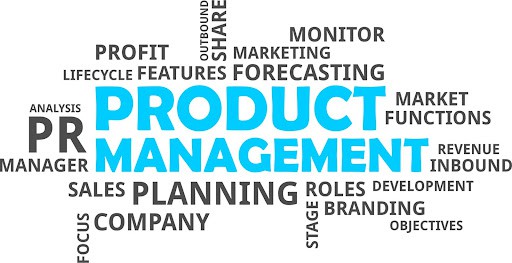
Product Management is a demanding and rewarding career. A corporate Product Manager plays an integral role in developing and implementing products that generate revenue for their company. They work closely with cross-functional teams, presenting and defending their ideas to executives, product marketers, engineers, designers and other stakeholders. The successful candidate will be highly analytical so they can understand customer needs and present solutions to meet them; creative so that they can create innovative products; articulate to convey complex information in a concise manner; collaborative because they must work well with others on the team; strategic because they must see how new initiatives fit into larger business goals; empathetic since the success of every product depends on understanding users’ needs while balancing different interests within an organization.
Sam Cook, Product Manager at Facebook, says, “A corporate product manager must stay relevant and constantly learn. As new products are developed, the Product Managers own the launch plans for these new initiatives. The effort required to master them is one of the core challenges of the role.”
The Qualities of a Corporate Product Manager
To be successful as a Corporate Product Manager, you must have the following characteristics:
Exceptional communication skills are essential to gain buy-in from various stakeholders within an organization. Corporate Product Managers will need to communicate complex issues in a clear and accessible manner to other team members who work across many different divisions throughout their company; clearly convey benefits that motivate decision-makers at all levels; and influence colleagues and key company leaders with data-driven arguments about how proposed business decisions will impact primary business goals like revenue generation, brand image and competitive advantage.
The ability to prioritize is another must-have if you want to become a Corporate Product Manager. It is important to look at the big picture and know what initiatives deserve your attention and resources to positively impact the company. They will need to focus on projects that meet primary goals while keeping secondary goals in mind, as well as stay flexible by shifting priorities if there is a more urgent need, like when a new initiative becomes available or when it’s time for cross-functional teams to pivot to another idea.
A strong sense of objectivity will help you make data-driven decisions as a Corporate Product Manager. You must be able to separate bias from fact so that you can present an argument with concrete examples rather than mere opinions; consider both sides of the story before making a call on how to proceed, and be able to think outside of the box while looking at potential solutions.
Creative prowess is an asset in this role since you will need to create new ways to engage your audience with interactive content that can attract their attention and provoke action.
Proactive problem-solving is essential because you will encounter roadblocks on your journey as a Corporate Product Manager that will require innovative solutions. You must see opportunities where others only see limitations, anticipate what obstacles may come up along the way before they arise, and take responsibility for solving problems without depending too heavily on others within your organization.
Lastly, a willingness to learn is another key characteristic that will take you far as a Corporate Product Manager, especially when your role involves managing digital products. To be successful in this career path, you must understand current market trends; know what motivates customers and how to engage them throughout the customer journey, and stay up-to-date on new technologies and platforms so that your team can launch innovative programming.
The Process of Becoming a Corporate Product Manager at a Company
- Gain Experience Related to Product Management: First and foremost, you need experience working within an organization responsible for leadership and executing multiple projects or initiatives. If you have been working in corporate marketing or PR roles for several years, you could apply for a Product Management position.
- Gain Experience in the Field: If you don’t have previous experience working as a Product Manager, it is beneficial to gain experience at one specific type of business, like eCommerce or retail, before moving into Corporate Product Management. You might also consider spending some time as an independent consultant or freelancer because you will be able to offer your skills and expertise to different companies without needing their sponsorship as you build your career.
- Apply for Product Management Jobs: Once you’ve gained the necessary industry experience, you can begin looking for internal jobs within companies that recruit candidates with those qualifications. Search job listings online; attend networking events, and reach out to your professional contacts.
- Obtain a Sponsor: To be hired for a Corporate Product Management position, you will most likely need the support of someone in leadership or human resources at your company; ask around and see who might be willing to champion your candidacy.

The Biggest Challenges and Reward of Being a Corporate Product Manager
The biggest challenge is achieving success on every project that you undertake with minimal mistakes and failures. If even one initiative falls short of its goals, it can damage your reputation and the company’s brand image. However, the rewards are great when things go well because everyone knows when they have done good work.
One of the biggest challenges is consistently coming up with new ideas regularly because projects and initiatives will always be assigned to you, but never enough time to complete them all as you juggle multiple responsibilities at once. In some cases, there may not even be any new product needs for your team within your industry, which can lead to monotony if those are the only types of ideas that you work with every day.
On the bright side, this responsibility makes product managers invaluable assets within their companies because they often have a unique perspective on engaging customers and using technology effectively. They can also help cut costs by identifying areas where it is possible to reuse materials or services.
Corporate Product Managers are typically given authority over their projects and teams, which can be empowering but intimidating at times because they must always stay calm under pressure when making decisions that could affect their bottom line.
The Career of a Corporate Product Manager Compared to Others in Their Field
Product Managers can work for corporations large and small across various industries, whereas Marketing Managers typically work with the same types of businesses within specific sectors. Sales professionals may find themselves limited to selling products or services from other companies rather than managing them.
The biggest difference between product management jobs and other careers is that it requires an extraordinary amount of creativity because Product Managers must always come up with new ideas. Marketing business’s overall goals limiting professionals, salespeople, and consultants may not need to do this aspect of their jobs, which can limit how much input they have into the overall goals of the business.
Product Managers may sometimes serve as project leads for various initiatives across multiple functions within a company, whereas marketers usually focus on promoting various products or services through different channels. Marketers might also conduct research to help identify new areas where a company could sell its products but leave it up to Product Managers to decide whether those opportunities are profitable enough to pursue.
Product Managers often have more control over their time than other professionals who may be assigned specific tasks or meet strict deadlines because the work of marketers and salespeople is structured around meeting those goals rather than having as much flexibility as product managers.

Advice for Someone Who Wants to Become a Corporate Product Manager
- Develop an extensive knowledge base through outside reading, attending conferences, and networking with fellow professionals; this will help you become well-rounded and give you a competitive edge against others within your field.
- Maintain strong interpersonal skills, which can give you an edge over other applicants because it demonstrates your potential to build supportive working relationships with customers and coworkers alike.
- Exercise your creativity by constantly looking for new ways to solve existing problems. Someone merely looking to cut costs will lack the passion needed to succeed as a product manager within a company.
- Remember that companies are always looking for people who can make decisions independently, whereas consultants or salespeople must be referred by an existing client who trusts them completely. Product Managers may also be involved in vetting potential new hires, so they must keep this distinction in mind when applying for jobs and determine whether they would instead work alone or prefer having more input from others.
- Be prepared to take on greater challenges than most other professions related to your field, such as working with customers that may not always see eye-to-eye because a Product Manager’s vision might have to take a backseat depending on if something is deemed more important or profitable.
- Product Managers may be expected to work longer hours than other professionals within an organization, especially during the planning stages. They must focus their time and energy on gathering information from outside sources rather than simply doing what is necessary to get their job done.
Conclusion
If you’re looking for a career that is both challenging and rewarding in an industry where there’s always room to grow, become a Corporate Product Manager. Product Managers are responsible for the success of their company’s products or services with responsibility for everything from market research and development to pricing and marketing. They must balance all aspects of the business, including finance, operations, technology, design, sales, and more, while navigating competing interests such as those between engineering teams who want new features at any cost versus marketers who need revenue now. It can be difficult, but it will also provide opportunities like never before when combined with your creativity.
